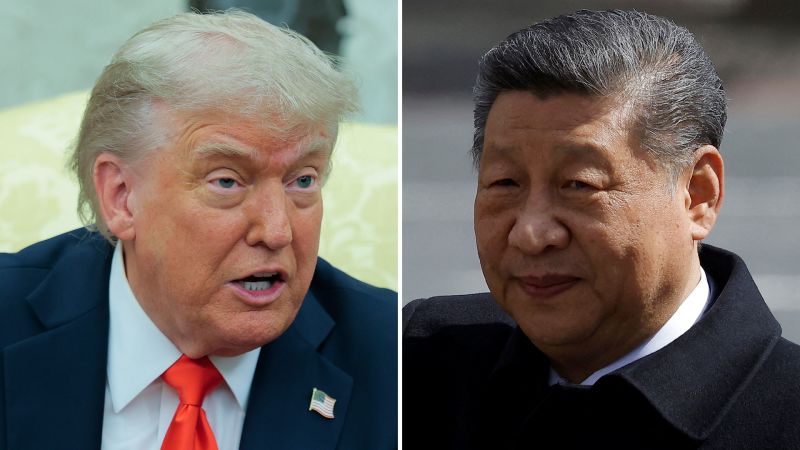China Leverages Rare Earths in Crucial US Trade Talks

London, UK – A pivotal round of trade negotiations between the United States and China commenced today in London, as both nations strive to maintain a fragile truce established last month. The discussions, announced following a significant phone call between US President Donald Trump and Chinese leader Xi Jinping, come amid escalating tensions over critical trade issues.
Immediate Impact
The fresh talks follow a surprise agreement in Geneva, where the US and China agreed to significantly reduce tariffs on each other’s goods for an initial 90-day period. However, the optimism was short-lived as disputes over China’s control of rare earth minerals and access to US semiconductor technology emerged as major sticking points.
Key Details Emerge
Beijing’s export of rare earths and related magnets is expected to dominate today’s agenda. A source familiar with the matter confirmed to CNN that the talks are underway, a report corroborated by China’s official news agency, Xinhua.
“China’s control over rare earth supply has become a calibrated yet assertive tool for strategic influence,” wrote Robin Xing, Morgan Stanley’s chief China economist, in a recent research note.
Industry Response
Since the Geneva talks, President Trump has accused China of obstructing rare earth exports, announcing additional chip curbs and threatening to revoke visas for Chinese students. These actions have provoked strong reactions from Beijing, which views them as a breach of trade commitments.
US Treasury Secretary Scott Bessent, Commerce Secretary Howard Lutnick, and Trade Representative Jamieson Greer are set to meet with a Chinese delegation led by Vice Premier He Lifeng. Over the weekend, China signaled a willingness to ease tensions, with a Commerce Ministry spokesperson stating that some compliant export applications had been approved.
“China is willing to further enhance communication and dialogue with relevant countries regarding export controls to facilitate compliant trade,” the spokesperson said.
By the Numbers
- China controls 90% of global rare earth processing.
- US exports to China fell by 34.5% in May.
- China’s overall exports rose by just 4.8% in May, a sharp slowdown.
What Comes Next
Kevin Hassett, head of the National Economic Council, expressed optimism about reaching a trade deal. Speaking to CBS’s Face the Nation, he emphasized the importance of restoring the flow of rare earth minerals, which are crucial for various US industries, including automotive manufacturing.
“Those exports of critical minerals have been getting released at a rate that is higher than it was, but not as high as we believe we agreed to in Geneva,” Hassett stated.
Background Context
In April, amid escalating trade tensions, China introduced a new licensing regime for rare earth minerals, requiring exporters to seek approvals and submit documentation for each shipment. This move has been perceived as a strategic maneuver by Beijing to leverage its dominance in the rare earth market.
The American Chamber of Commerce in China reported that some Chinese suppliers of American companies have received six-month export licenses, indicating a potential easing of restrictions.
Expert Analysis
Experts suggest that China may use its rare earth leverage to persuade the US to ease export controls on advanced semiconductors. Leah Fahy, a China economist at Capital Economics, noted that Beijing had already become more assertive in using export controls to protect its strategic sectors.
“Beijing had become more assertive in its use of export controls as tools to protect and cement its global position in strategic sectors, even before Trump hiked China tariffs this year,” Fahy explained in a research note.
Regional Implications
As China grapples with the ongoing tariff war, its economic challenges are becoming increasingly apparent. Recent trade data revealed a significant decline in exports to the US, exacerbating the country’s economic woes. The National Bureau of Statistics reported a 0.1% drop in the Consumer Price Index in May, alongside a 3.3% decrease in factory-gate prices.
The timing of these negotiations is crucial as both nations seek to stabilize their economic relations. The outcome of the London talks will likely have far-reaching implications for global trade dynamics and economic stability.





